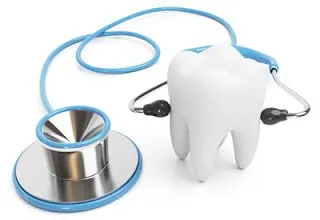Although seeing a dentist is no substitute for a visit to a physician, regular dental checkups can reveal much about your overall health. If a dentist finds a potential health issue, he or she can refer you to a physician for follow-up.
Studies have shown that people with moderate or advanced gum (periodontal) disease are more likely to have cardiovascular disease (CVD) or heart disease than those with healthy gums. Although gum disease seems to be associated with heart disease, more studies are needed. But we do know that regular dental checkups, professional cleanings and good oral hygiene practices can improve oral health and that good oral health contributes to good overall health.
Studies show that people with diabetes are more susceptible to tooth loss and the development of gum (periodontal) disease and other oral health problems. Diabetes can slow the healing process and lower resistance to infections, including oral infections. Maintenance of good oral health through regular dental visits and appropriate treatment of gum problems is critical for people with diabetes.
Dentists also screen for oral cancer and other cancers of the head and neck, including skin cancer, cancer of the jaw bone and thyroid cancer, during routine checkups. Survival rates greatly increase if oral cancer is discovered earlier and treated. During your dental visit, you can ask your dentist to do an oral cancer screening. Also, periodic self-examinations can increase your chances of detecting oral cancer, so be sure to examine your face, cheeks, jaw and neck regularly for any changes or lumps.
Several studies have shown an association between periodontal disease and an adverse outcomes in pregnancy such as premature deliveries, fetal growth restrictions, and other complications.
The oral cavity may serve as a source for early detection for other medical concerns. For example, lesions in the mouth may be the first indication of HIV infection and may be used to determine the staging and progression of AIDS.
Visiting a dentist regularly can help you maintain your oral health. A dentist’s exam may detect poor nutrition and hygiene and oral cancer, as well as provide clues to your overall health and well-being. Also, brush and floss every day.
It is important for you and your family to provide your dentist with complete medical and dental histories and to inform your dentist of any recent health developments, including the use of over-the-counter medications and diet supplements, even if they seem unrelated to oral health. Why? Because some health conditions can even affect how dental care is provided.
References:
- Stewart R, West M. Increasing Evidence for an Association between Periodontitis and Cardiovascular Disease. Circulation 2016.
- Luo H, Pan W, Sloan F, Feinglos M, Wu B. Forty-Year trends in Tooth Loss Among American Adults with and without Diabetes Mellitus: An Age-Period Cohort Analysis. Prev Chronic Dis 2015;12:150309
- Paquette D. Periodontal Disease and the Risk for Adverse pregnancy outcomes. Grand Rounds in Oral-Sys Med 2006; 4:14-24.

